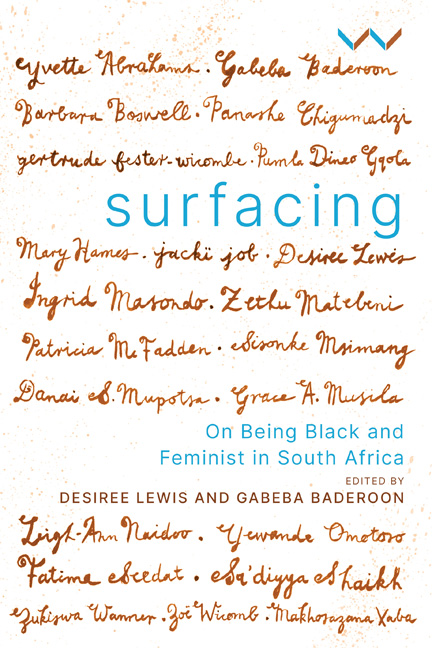Book contents
Chapter 14 - Echoes of Miriam Tlali
Published online by Cambridge University Press: 15 April 2021
Summary
Encountering a womxn who dared to dream
My entry into Johannesburg on a frigid day in July 2006 is not set in the mould of the triumphal, Jim(or Jane?)-comes-to-Joburg narrative. As I find myself waiting in the forecourt of a petrol station in Newtown, with an insufficient coat offering little protection against the Highveld winter, I am overcome with dread: the fear of being alone in an unknown city; the anxiety of knowing I have an important and what will turn out to be a life-changing appointment, without knowing how to get to the place of this fateful meeting. I am in the discomfiting position of being a stranger in my own country, having spent the preceding four years in Maryland in the USA, where I completed a doctorate in women's and gender studies. Now I am returning briefly to an unfamiliar city, at once an insider and an outsider, to do a series of interviews with Black womxn writers, the topic of my dissertation.
My appointment is with Miriam Tlali, the first Black South African womxn writer to publish a book-length work of fiction in South Africa. During my doctoral work and before, as an MPhil student at the University of the Western Cape, Tlali had occupied a large part of my imagination, and became for me an icon. I was almost 30 when I first read Muriel at Metropolitan (1975), the debut novel that would secure her place in history and in my heart, and it forever changed the way I thought and still think about literature, its political and cultural value, and its beauty. The novel produced for me an epistemic break – leading me to consider, for the first time, questions about the value of certain voices, the circuits of publication and dissemination of Black womxn's literary writing, and the sheer courage it took for a Black womxn to articulate a creative work against the backdrop of one of the most repressive political systems of the twentieth century, bent on destroying Black womxn and Black families.
How can I fully begin to tell the story of what Miriam Tlali has meant to me? It is a story I will grapple with for the rest of my life, as her multiple meanings and significations in my personal, political and professional life continue to unfold.
- Type
- Chapter
- Information
- SurfacingOn Being Black and Feminist in South Africa, pp. 198 - 214Publisher: Wits University PressPrint publication year: 2021



